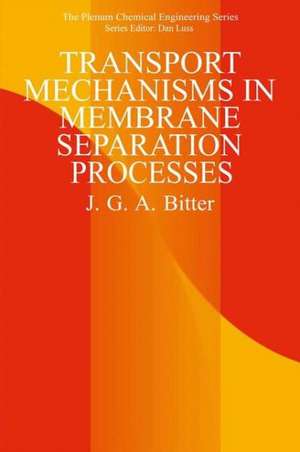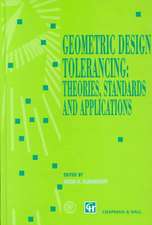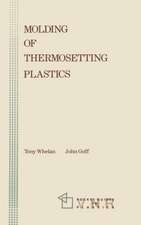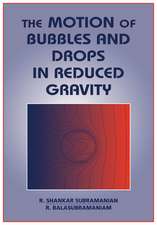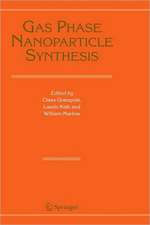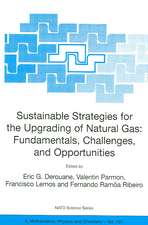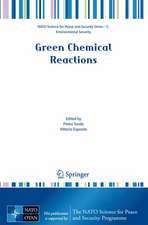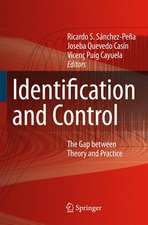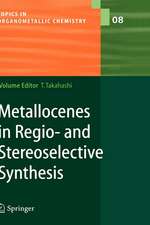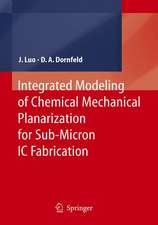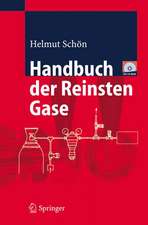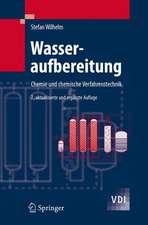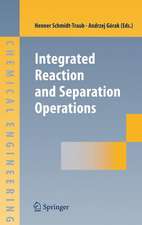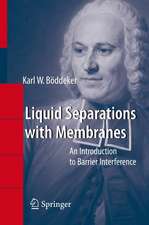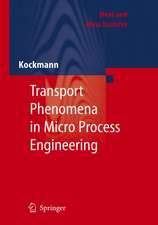Transport Mechanisms in Membrane Separation Processes: The Plenum Chemical Engineering Series
Autor J.G.A. Bitteren Limba Engleză Paperback – 21 oct 2012
| Toate formatele și edițiile | Preț | Express |
|---|---|---|
| Paperback (1) | 384.31 lei 43-57 zile | |
| Springer Us – 21 oct 2012 | 384.31 lei 43-57 zile | |
| Hardback (1) | 587.72 lei 43-57 zile | |
| Springer Us – 31 iul 1991 | 587.72 lei 43-57 zile |
Preț: 384.31 lei
Nou
Puncte Express: 576
Preț estimativ în valută:
73.54€ • 76.97$ • 61.21£
73.54€ • 76.97$ • 61.21£
Carte tipărită la comandă
Livrare economică 31 martie-14 aprilie
Preluare comenzi: 021 569.72.76
Specificații
ISBN-13: 9781461366362
ISBN-10: 1461366364
Pagini: 240
Ilustrații: XV, 219 p.
Dimensiuni: 152 x 229 x 13 mm
Greutate: 0.33 kg
Ediția:Softcover reprint of the original 1st ed. 1991
Editura: Springer Us
Colecția Springer
Seria The Plenum Chemical Engineering Series
Locul publicării:New York, NY, United States
ISBN-10: 1461366364
Pagini: 240
Ilustrații: XV, 219 p.
Dimensiuni: 152 x 229 x 13 mm
Greutate: 0.33 kg
Ediția:Softcover reprint of the original 1st ed. 1991
Editura: Springer Us
Colecția Springer
Seria The Plenum Chemical Engineering Series
Locul publicării:New York, NY, United States
Public țintă
ResearchCuprins
1. Introduction.- 2. Types of Membrane Separation Processes, Mechanisms of Separation.- 2.1. Porous Membranes.- 2.2. Liquid Membranes.- 2.3. Tight Membranes.- 2.4. Selection of Membrane Separation Processes and Mechanisms.- 3. Survey of Membrane Separation Models.- 3.1. Irreversible Thermodynamics.- 3.2. Preferential Sorption-Capillary Flow Theory.- 3.3. The Solution-Diffusion Model.- 3.4. Viscous Flow Models; Accounting for Imperfections.- 3.5. Models for the Separation of Gas (Vapor) Mixture.- 3.6. Concentration Polarization.- 3.7. Blocking, Fouling, and Poisoning.- 4. Comparison of Membrane Permeation Models.- 4.1. Liquid Separations.- 4.2. Gas Separations.- 4.3. A New Permeation Model for Gases and Liquids.- 5. Basic Diffusion Equation.- 5.1. Introduction.- 5.2. The Maxwell-Stefan Equation.- 5.3. Equation of Darken, Prager, and Crank.- 5.4. The Modified Maxwell-Stefan Equation.- 6. Solubility of Permeants in Semi-Crystalline and Crosslinked Polymers.- 6.1. Solubility of Liquids in Polymers.- 6.2. Modified Equation for the Partial Molar Entropy of Mixing.- 6.3. Partial Molar Enthalpy of Mixing.- 6.4. The Modified Flory-Huggins Equation.- 6.5. Solubility of Gases in Polymers.- 6.6. The Modified Flory-Huggins Equation for Gases.- 7. Comparison and Experimental Check of the Solubility Equations.- 7.1. Swelling of Polyolefins.- 7.2. Swelling of Natural Rubber in Binary Solvent Mixtures.- 7.3. Swelling of Cellulose Diacetate in Mixtures of Ethanol and Water.- 7.4. Solubility of N2O, CO2, and C2H4 in PMMA.- 7.5. Solubility of CO2 and CH4 in Polysulfone.- 8. Prediction of Diffusivity in Multi-Component Mixtures.- 8.1. Basic Diffusivity.- 8.2. Concentrated Solute Diffusivity.- 8.3. Estimation of Diffusion Coefficients.- 8.4. Mixture Viscosity.- 8.5. Prediction of Diffusivityfrom Mixture Viscosity.- 9. New Permeability Equations.- 9.1. Introduction.- 9.2. Effect of Crystallinity and Swelling on Permeability.- 9.3. Specific Diffusion Rate.- 9.4. Simplified Calculation Procedure of Membrane Permeation.- 9.5. Stress Distributions Inside Membranes.- 9.6. Effect of Pressure Gradients Inside Membranes on Permeation.- 9.7. Permeability Equation for Gases.- 10. Permeation Experiments (Program and Procedures).- 10.1. Membranes Tested.- 10.2. Pervaporation Experiments.- 10.3. Reverse Osmosis Experiments.- 10.4. Dialysis Experiments.- 11. Results of Permeation Experiments.- 11.1. Effect of Permeation Time on Flux and Selectivity.- 11.2. Effect of Composition and External Driving Force on Flux and Selectivity.- 12. Experimental Check of the Permeation Equations.- 12.1. Concentration Dependence of the Mean Diffusivity.- 12.2. Prediction of Selectivity in Pervaporation.- 12.3. Comparison of Calculated and Measured Permeation in Reverse Osmosis.- 12.4. Comparison of Calculated and Measured Permeation by Dialysis.- 12.5. Mutual Effect of Hydrocarbons on their Permeability.- 12.6. Pervaporation of Ethyl Alcohol/Water Mixtures through Cellulose Diacetate Membranes.- 12.7. Permeability of Gases in Polysulfone.- 12.8. Permeability of Mixtures of CO2 and CH4 in Polyisoprene.- 13. Optimum Choice of Polymers for Membrane Preparation.- 14. Discussion and Conclusions.- Appendix I. Irreversible Processes Near Equilibrium.- I.1. Introduction.- I.2. Theory of Near-Equilibrium Processes.- I.3. Entropy Production in Irreversible Flow Processes.- I.4. Rate of Entropy Production; Dissipation Function.- I.5. Phenomenological Equations.- I.6. Requirements of the Phenomenological Coefficients.- I.7. Application of IT/OR/ORR in Membranes; The Kedem-Katchalsky Mode.- AppendixII. Derivation of the Concentration Polarization Equation of Gases.- II.1. Continuity Equation.- II.2. Transport Equation for Tight Membranes.- II.3. Experiments and Results.- Appendix III. Derivation of The Maxwell-Stefan Equation.- Appendix IV. Derivation of the Modified Maxwell-Stefan Equation.- Appendix V. Theory of the Entropy of Mixing.- V.1. Derivation of the Entropy Equation.- V.2. Entropy of Elastic Strain.- Appendix VI. Partial Molar Mixing Enthalpy of Multicomponent Mixtures.- Appendix VII. Solubility Equation for Gases in Polymers.- Appendix VIII. Evaluation and Estimation of Swelling Parameters.- VIII.1. Crystallinity.- VIII.2. Coordination Number.- VIII.3. Partial Molar Volume.- VIII.4. Partial Molar Heat of Mixing.- VIII.5. Activity of Permeants and Permeant Mixtures.- VIII.6. Elastic Strain Factor.- Appendix IX. Self-Diffusivity in Multicomponent Mixtures.- Appendix X. Viscosity of Multicomponent Mixtures.- Appendix XI. Estimation of the Geometric Diffusion Resistance.- Appendix XII. Approximate Solution of the General Differential Equation of Membrane Permeation.- Appendix XIII. Derivation of the Gas Permeation Equation.- List of Symbols.- References.
